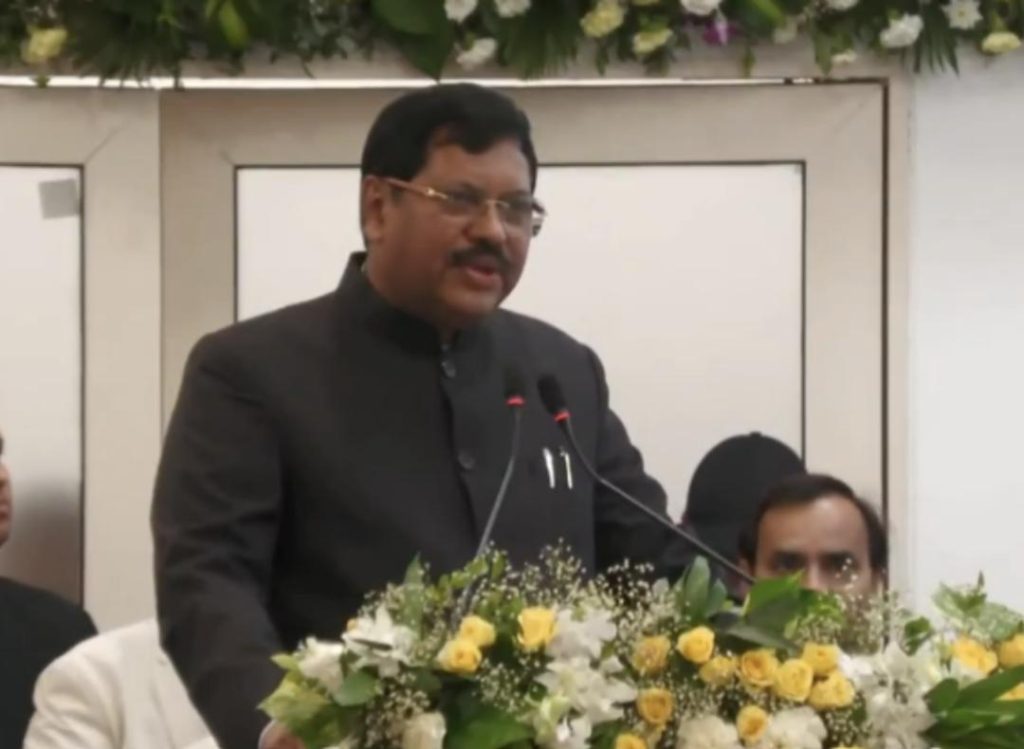
Constitution an Evolving Document, Adapting to Changes: CJI Gavai
The Indian Constitution is often referred to as a sacred document that lays the foundation of our democratic governance system. However, Chief Justice of India (CJI) BR Gavai has recently stated that the Constitution is not a static document, but rather a living, organic, and evolving one that adapts to the changes demanded by various circumstances. This perspective highlights the dynamic nature of the Constitution, which has been amended numerous times to ensure that it remains relevant and effective in meeting the needs of a rapidly changing society.
In a recent statement, CJI Gavai emphasized that the Supreme Court has consistently raised issues related to the interpretation of the Constitution, and in response, Parliament has amending it to meet the changing needs of new generations. This iterative process demonstrates the Constitution’s ability to evolve and adapt to the demands of a diverse and dynamic society.
The Indian Constitution was adopted in 1950, and since then, it has undergone numerous amendments to ensure that it remains relevant and effective. The first amendment was passed in 1951, just a year after the Constitution came into effect, to clarify the relationship between the Centre and the states. Since then, the Constitution has been amended over 100 times to address various issues, including the abolition of privy purses, the introduction of reservations for scheduled castes and scheduled tribes, and the establishment of the Goods and Services Tax (GST) regime.
The Constitution’s ability to evolve and adapt to changing circumstances is a testament to the wisdom of its drafters, who recognized the need for a document that could be flexible enough to address the needs of a rapidly changing society. The Constitution’s Preamble, which sets out the country’s fundamental principles and goals, is a reflection of this philosophy. The Preamble declares that the Constitution aims to secure to all citizens social, economic, and political justice, as well as equality of status and opportunity.
The Constitution’s commitment to justice, equality, and freedom is reflected in its various provisions, including the right to equality, the right to freedom, and the right to education. These provisions have been interpreted and applied in various ways over the years to ensure that they remain relevant and effective in meeting the needs of a diverse and dynamic society.
The Constitution’s ability to evolve and adapt is also reflected in its provision for amendment. The Constitution allows for amendments to be made through a process that involves both the Parliament and the states. This provision ensures that the Constitution remains a living document that can be adapted to meet the changing needs of society.
The importance of the Constitution’s ability to evolve and adapt is underscored by the challenges that the country faces today. India is a rapidly changing society, and the Constitution must be able to adapt to these changes in order to remain relevant and effective. The COVID-19 pandemic has highlighted the need for a Constitution that can respond to emergencies and crises, and the government’s response to the pandemic has demonstrated the importance of a flexible and adaptable Constitution.
In conclusion, the Indian Constitution is a living, organic, and evolving document that adapts to the changes demanded by various circumstances. The Constitution’s ability to evolve and adapt is a testament to the wisdom of its drafters, who recognized the need for a document that could be flexible enough to address the needs of a rapidly changing society. As the country continues to evolve and grow, the Constitution must remain a dynamic and adaptive document that can respond to the changing needs of society.






